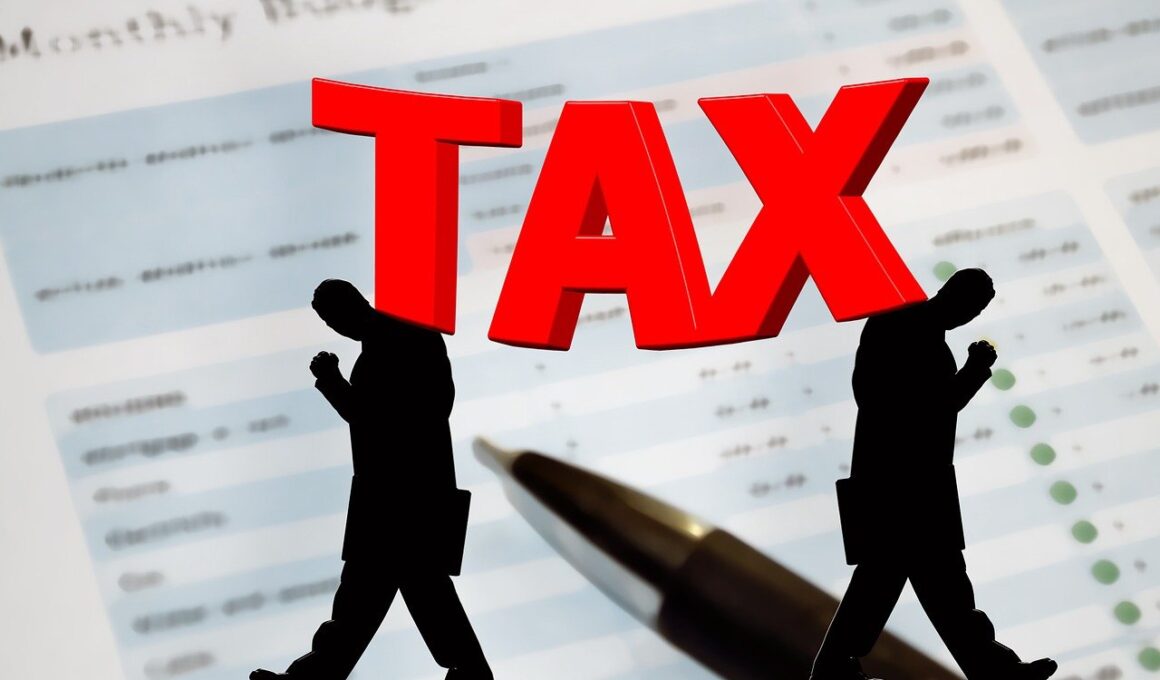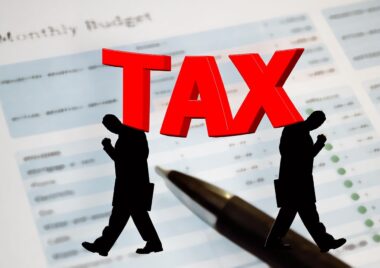Common Reasons for Tax Appeals and How to Address Them
Tax appeals occur when taxpayers disagree with the amounts or decisions made by tax authorities. A frequent cause of appeals is incorrect income calculations. Taxpayers may believe their income has been overestimated, leading to higher tax liabilities. Ensuring accurate records and having appropriate documentation is crucial. Another common issue involves misapplication of deductions. Taxpayers may think they qualify for certain deductions but face denial. Maintaining clear communication with tax professionals can clarify eligibility. Additionally, improper classification by tax authorities can lead to appeals. Taxpayers might be misclassified as high-risk instead of low-risk in their filings. Detailed records of previous tax classifications can be beneficial during appeals. Furthermore, discrepancies between reported income and data from the IRS can spark disputes. Therefore, it’s essential for taxpayers to proactively check their records against IRS data. Lastly, mistakes in paperwork can lead to wrongful assessments. Errors such as incorrect Social Security numbers or math errors can trigger higher taxes. Working closely with qualified tax preparers ensures accuracy and minimizes disputes. Addressing these common reasons effectively can significantly improve the outcomes of tax appeals.
Effective communication can alleviate many stressors associated with tax appeals. Taxpayers should understand the importance of engaging with tax professionals during assessments. Poor communication prior to appeals can lead to misunderstandings about tax positions. When engaging with tax authorities, clearly articulate concerns and be ready to provide evidence supporting claims. Keeping records organized and accessible can streamline this process, saving time and reducing frustration. Additionally, understanding one’s rights is paramount. Taxpayers have the right to appeal decisions and should be aware of their options for dispute resolutions. Furthermore, deadlines are critical in the appeals process. Taxpayers must pay attention to timelines for filing appeals. Timely submissions can significantly boost the chances of a favorable resolution. Building a timeline of critical dates, such as when notices are received and when appeals are due, provides clarity. Moreover, understanding the potential for different resolutions is beneficial. Tax authorities may offer settlements, adjustments, or alternative dispute resolutions that can be more beneficial than expected. Negotiating a fair resolution can be an effective strategy. Utilizing these communication tips, knowledge of rights, and understanding timelines can empower taxpayers during the tax appeals process.
Preparation Steps for a Successful Tax Appeal
Preparation is vital to a successful tax appeal. Early organization of financial documents is essential. Taxpayers should gather necessary paperwork such as W-2s, tax returns, and supporting documents for deductions claimed. Having a comprehensive understanding of the tax laws that pertain to your case can bolster your appeal. Furthermore, knowing the specifics of why an appeal is being filed allows taxpayers to present focused and pertinent arguments. One should establish a detailed timeline of the events leading to the appeal. This includes dates of communications with tax authorities and the specifics of assessments. Engaging a qualified tax professional can provide additional insights and advocate on your behalf, improving the chances of success. Another preparatory step is reviewing similar cases. Understanding how past appeals have been resolved can provide valuable insights and strategies. Taxpayers should also prepare for the possibility of an audit. Familiarizing themselves with audit processes can provide reassurance and enhance preparedness. Lastly, remaining patient throughout the appeals process is integral, as outcomes may take time. Relying on strong preparation helps navigate the complexities of tax appeals effectively.
Taxpayers should note the significance of building a strong case during the appeal process. Providing organized and clear documentation is crucial to assert claims confidently. Tax authorities prefer concise, relevant information that directly addresses disputes, so clarity is essential. Ensuring complete and accurate details can also mitigate further complications. Another important aspect is presenting evidence logically. Presenting facts chronologically or thematically helps paint a clear picture, making it easier for tax authorities to understand the taxpayer’s position. Moreover, including testimony or statements from professionals can provide added credibility. Taxpayers may also want to consider obtaining expert opinions or affidavits to strengthen their appeal. Engaging with tax professionals enhances the validity of presented arguments. When including evidence, ensure that it is relevant to the specific claim being made. Avoid overwhelming tax authorities with excessive information, as clarity is often preferred. Furthermore, understanding how tax law supports the appeal is essential for arguing effectively. Properly referencing relevant tax codes or prior rulings can bolster the strength of the appeal. Building a strong case based on organized documentation and credible evidence is instrumental in pursuing a successful tax appeal.
Addressing Communication in the Appeal Process
Communication plays a pivotal role during the tax appeal process. Initially, establishing a clear line of communication with tax professionals is vital. This ensures that all aspects of the case are discussed and understood thoroughly. Taxpayers should feel free to ask questions when they do not comprehend various tax implications. Open dialogue fosters understanding and promotes a smoother appeals process. Furthermore, maintaining ongoing communication with the tax authority is important during the appeal. Documenting all interactions, including dates and details of conversations, provides clarity on what has been discussed. When communicating with tax authorities, always remain polite and professional. Keeping emotions in check can help facilitate productive discussions. Additionally, utilizing formal communication methods such as written letters or emails helps maintain a record of communications. It allows taxpayers to articulate their points clearly without the pressure of face-to-face interactions. Moreover, timely follow-ups on any communications can keep the appeal process moving forward. Prompt responses demonstrate commitment and seriousness regarding the appeal. Lastly, ensuring that all communications adhere to regulations is important for credibility. Adhering to proper channels maintains professionalism and can significantly enhance the appeal process overall.
Understanding the appeals process itself is crucial for effective navigation through potential disputes. Tax appeals typically follow specific procedures, and familiarity with these steps is beneficial. Initially, taxpayers will need to file a notice of appeal, which outlines the reasons for the dispute. This is generally done within a certain timeframe after receiving a tax assessment. Following this, the tax authority reviews submitted documentation. Taxpayers should be prepared to provide additional details if requested. Another important aspect is the ability to represent oneself during hearings. While some may choose to have a tax professional represent them, understanding personal rights to appeal directly is empowering. There’s also the possibility of settlement discussions, which can promote amicable resolutions without further formalities. Taxpayers should approach these discussions with an open mind and willingness to negotiate. Lastly, knowing the potential outcomes of an appeal is pivotal. Resolutions can include adjustments to tax amounts owed, which can alleviate financial burdens. Understanding that appeals may lead to different results can prepare taxpayers emotionally and strategically. Overall, knowledge about the tax appeals process enhances confidence when addressing disputes effectively.
Conclusion and Final Considerations
In conclusion, addressing tax appeals involves diligence, communication, and preparedness. Taxpayers should recognize the common reasons for disputes, including miscalculations and documentation errors. Engaging knowledgeable tax professionals throughout the process is crucial for providing guidance and ensuring proper representation. Moreover, preparation is key; organizing all necessary documents helps establish credibility and clarity during the appeal. Taxpayers must pay attention to important timelines, ensuring prompt responses to communications and adhering to deadlines. Understanding communication protocols enhances cooperation with tax authorities, making the process smoother overall. Presenting a solid argument built upon strong evidence and clear rationale is instrumental in persuading tax authorities. Keeping the process professional helps maintain an amicable relationship with tax authorities throughout. Lastly, taxpayers should remain patient and persistent, as the appeal process may take time. Staying informed and adaptable to potential outcomes fosters a positive mindset. Approaching tax appeals with well-organized strategies will ultimately facilitate a more favorable resolution. By understanding the various aspects discussed throughout this article, taxpayers can effectively navigate tax appeals, ensuring they are positioned to achieve success in challenging situations.





